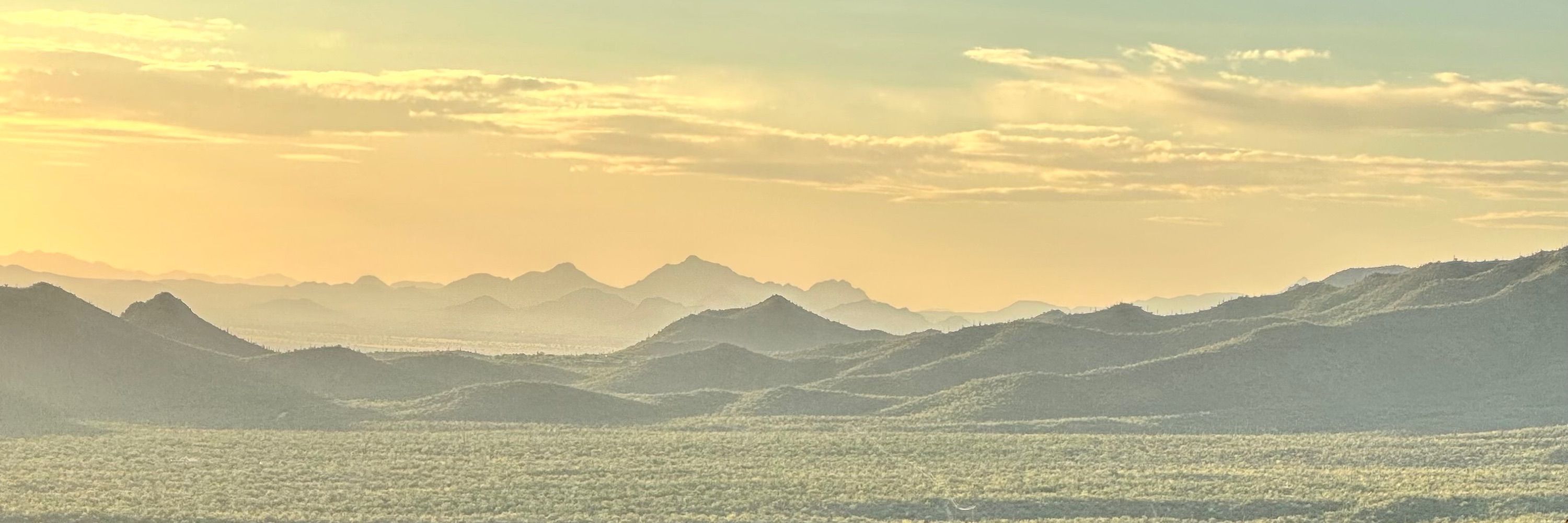
Formerly CVL @ UTDallas 🧠
sabinasrokova.com
Meet up with us to collaborate and share your science journey: from the questions that drive your work to the breakthroughs that inspire you.
Sign up here:
calendly.com/investnscien...
And share with your science friends!

Meet up with us to collaborate and share your science journey: from the questions that drive your work to the breakthroughs that inspire you.
Sign up here:
calendly.com/investnscien...
And share with your science friends!
Across two new papers, we examined the eye movement patterns of younger adults, older adults, individuals with mild cognitive impairment, and amnesic cases.
1/5
Across two new papers, we examined the eye movement patterns of younger adults, older adults, individuals with mild cognitive impairment, and amnesic cases.
1/5
New paper by @selmalugtmeijer.bsky.social showing that neural states get longer as people age. #PsychSciSky
nature.com/articles/s42003-025-08792-4

New paper by @selmalugtmeijer.bsky.social showing that neural states get longer as people age. #PsychSciSky
nature.com/articles/s42003-025-08792-4
Link in post below 👇

Link in post below 👇
We found that whole-brain cortical volume predicted the strength of neural reinstatement of scene information in the parahippocampal and medial place areas (PPA & MPA in the figure below). (1/2)

We found that whole-brain cortical volume predicted the strength of neural reinstatement of scene information in the parahippocampal and medial place areas (PPA & MPA in the figure below). (1/2)
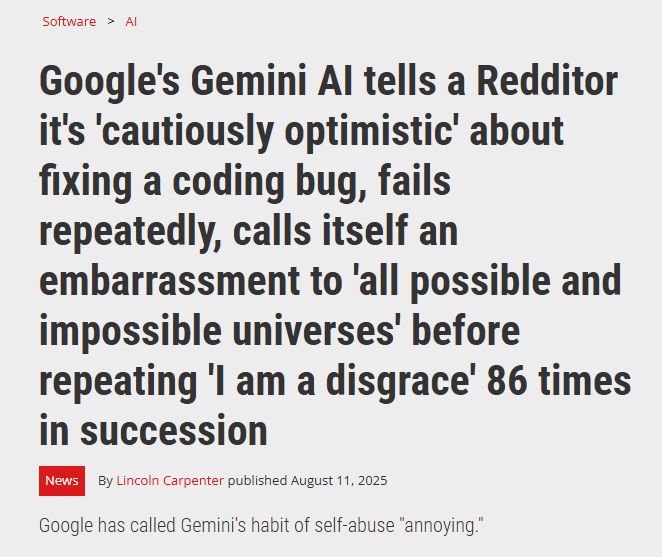
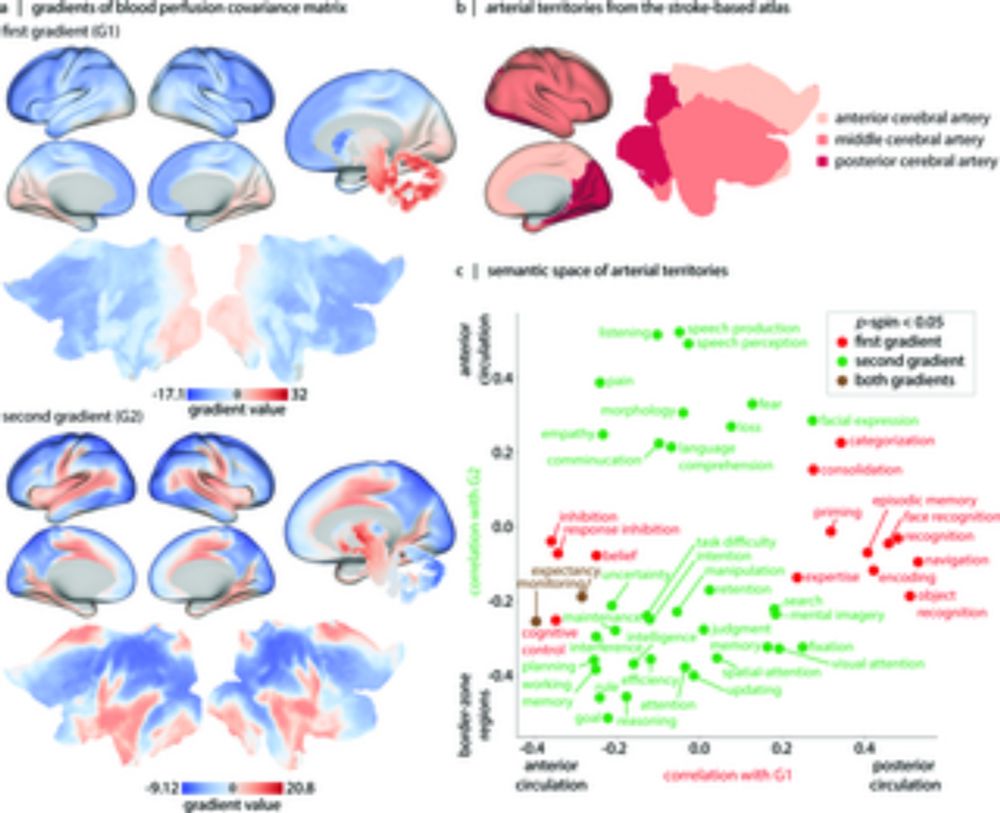
It still became a polarization machine.
Then we tried six interventions to fix social media.
The results were… not what we expected.
arxiv.org/abs/2508.03385
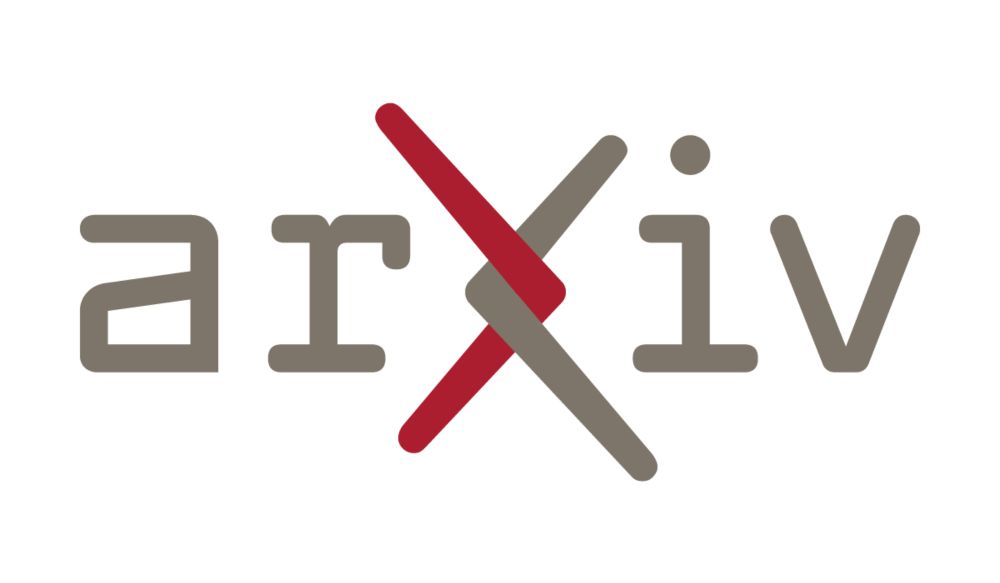
It still became a polarization machine.
Then we tried six interventions to fix social media.
The results were… not what we expected.
arxiv.org/abs/2508.03385
![What do representations tell us about a system? Image of a mouse with a scope showing a vector of activity patterns, and a neural network with a vector of unit activity patterns
Common analyses of neural representations: Encoding models (relating activity to task features) drawing of an arrow from a trace saying [on_____on____] to a neuron and spike train. Comparing models via neural predictivity: comparing two neural networks by their R^2 to mouse brain activity. RSA: assessing brain-brain or model-brain correspondence using representational dissimilarity matrices](https://cdn.bsky.app/img/feed_thumbnail/plain/did:plc:e6ewzleebkdi2y2bxhjxoknt/bafkreiav2io2ska33o4kizf57co5bboqyyfdpnozo2gxsicrfr5l7qzjcq@jpeg)
We examine the growing evidence that vascular dysfunction plays a key role in cognitive decline in ageing and dementia, and argue that preserving/restoring CBF should be central to future therapies.
www.nature.com/articles/s41...
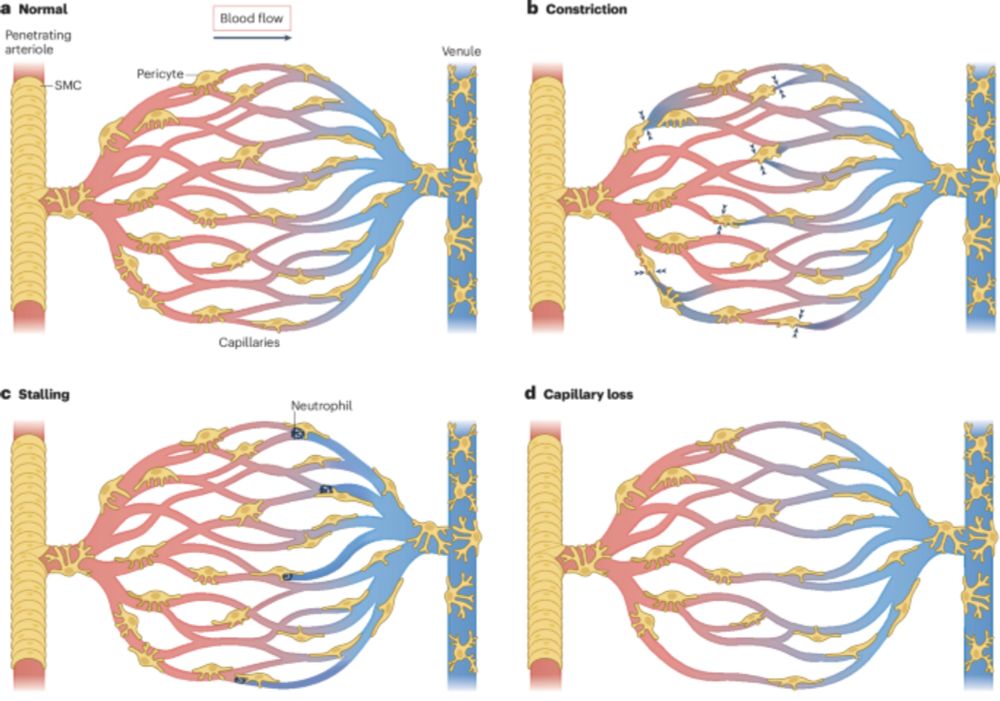
We examine the growing evidence that vascular dysfunction plays a key role in cognitive decline in ageing and dementia, and argue that preserving/restoring CBF should be central to future therapies.
www.nature.com/articles/s41...
and braingpt.org. LLMs integrate a noisy yet interrelated scientific literature to forecast outcomes. nature.com/articles/s41... 1/8
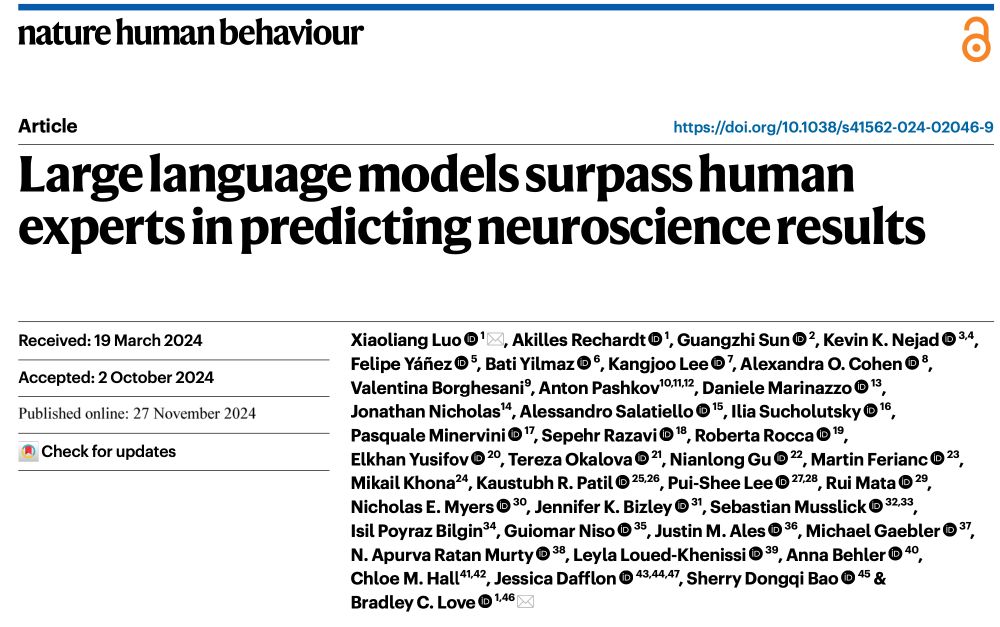
and braingpt.org. LLMs integrate a noisy yet interrelated scientific literature to forecast outcomes. nature.com/articles/s41... 1/8
Learn more and submit your application by July 25, 2025, 5pm ET: https://www.jneurosci.org/content/ecr-board-applications
Learn more and submit your application by July 25, 2025, 5pm ET: https://www.jneurosci.org/content/ecr-board-applications
AI performance is known to scale with logarithm of sample size (Kaplan 2020), but in many domains, sample size can be # participants or # measurements...
doi.org/10.1038/s415...
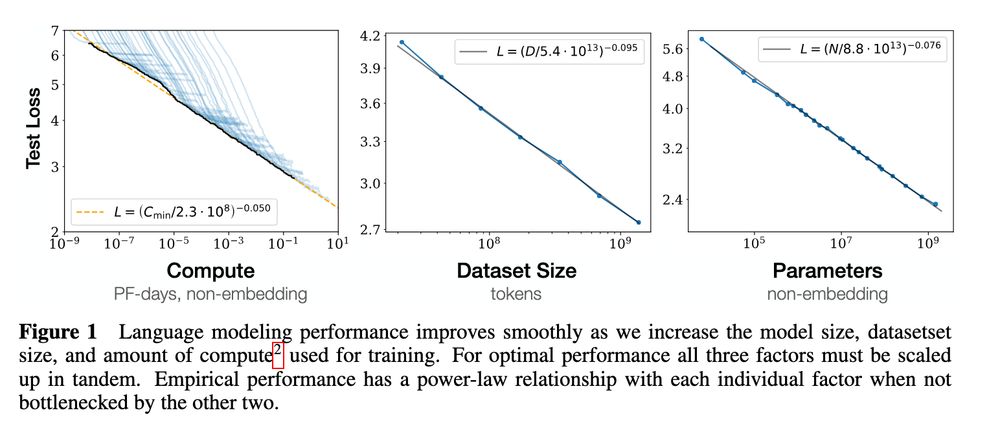
AI performance is known to scale with logarithm of sample size (Kaplan 2020), but in many domains, sample size can be # participants or # measurements...
doi.org/10.1038/s415...
“…at a time when legislation promises ‘big and beautiful change,’ it turns out one of the brain’s smallest players may have the biggest impact on how we understand and remember our lives.”
“…at a time when legislation promises ‘big and beautiful change,’ it turns out one of the brain’s smallest players may have the biggest impact on how we understand and remember our lives.”
@sfnjournals.bsky.social
@sfnjournals.bsky.social
We investigated how hippocampal and cortical ripples support memory during movie watching. We found that:
🎬 Hippocampal ripples mark event boundaries
🧩 Cortical ripples predict later recall
Ripples may help transform real-life experiences into lasting memories!
rdcu.be/eui9l
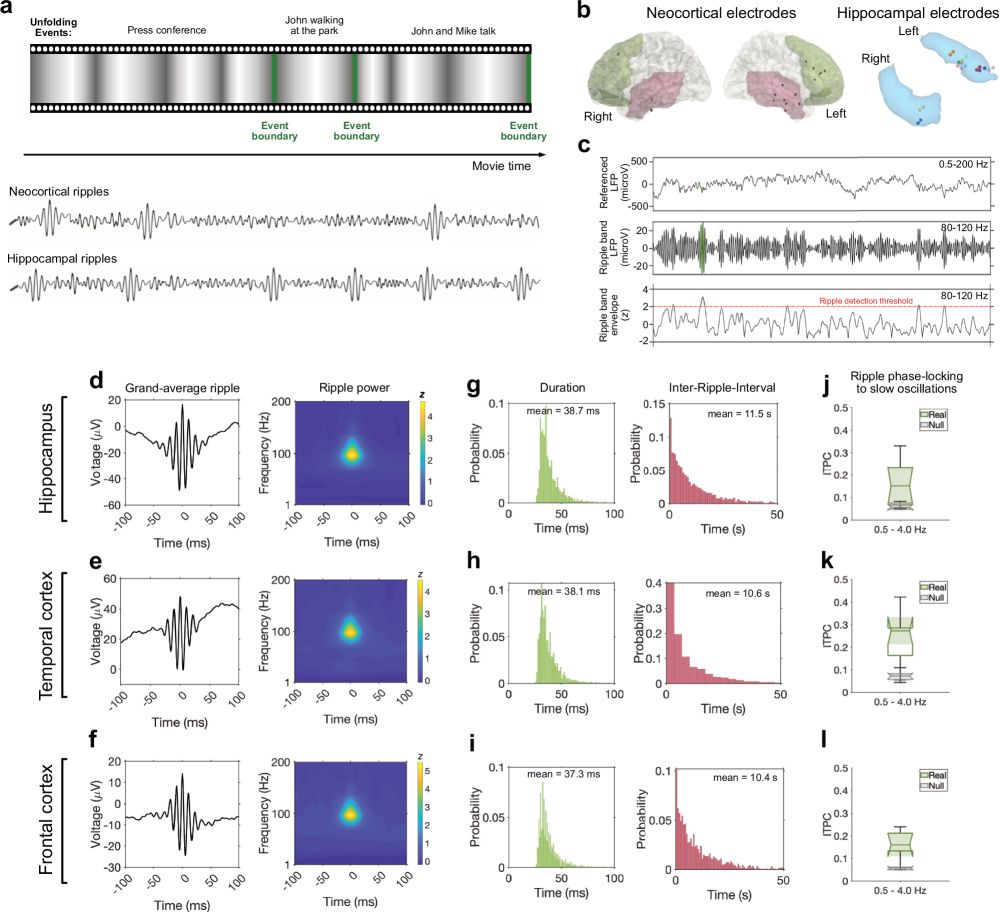
We investigated how hippocampal and cortical ripples support memory during movie watching. We found that:
🎬 Hippocampal ripples mark event boundaries
🧩 Cortical ripples predict later recall
Ripples may help transform real-life experiences into lasting memories!
rdcu.be/eui9l
We hope it sparks a smile (and maybe a few debates).
Read here: tinyurl.com/3ycv3vj2


We hope it sparks a smile (and maybe a few debates).
Read here: tinyurl.com/3ycv3vj2
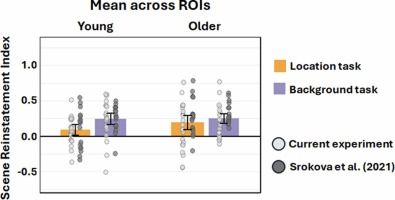
In @Science.org we show that activity in 🧠 memory circuits (LEC) drifts constantly, but makes sharp jumps at key moments, segmenting life into meaningful events. (1/2)
👉 www.science.org/doi/10.1126/...
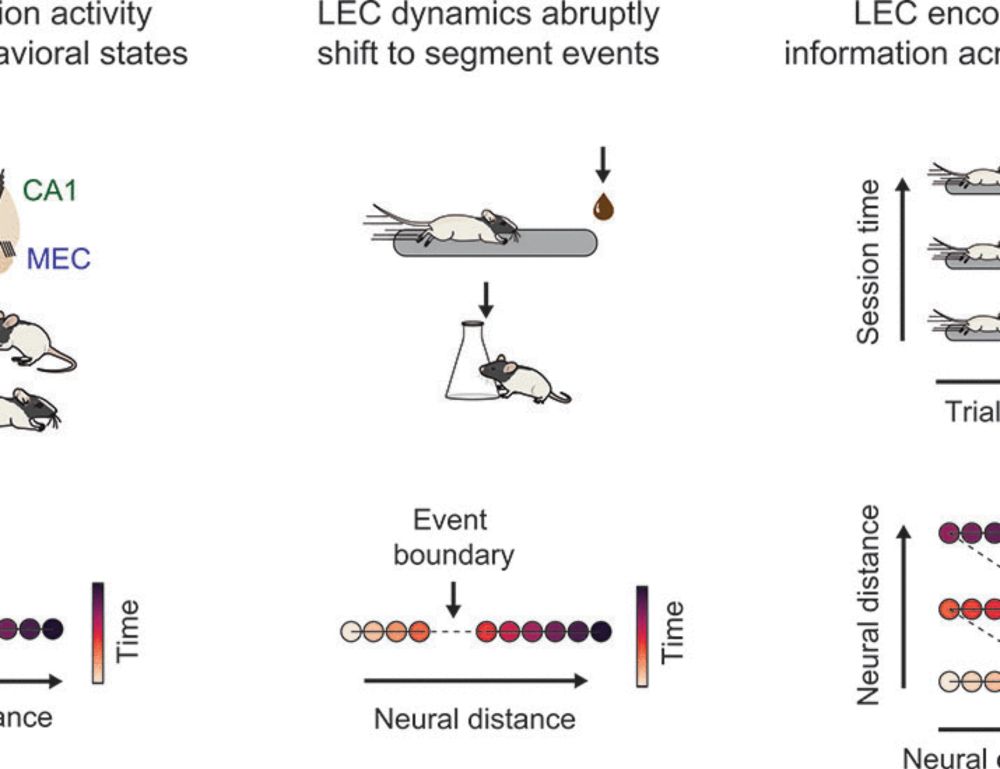
In @Science.org we show that activity in 🧠 memory circuits (LEC) drifts constantly, but makes sharp jumps at key moments, segmenting life into meaningful events. (1/2)
👉 www.science.org/doi/10.1126/...
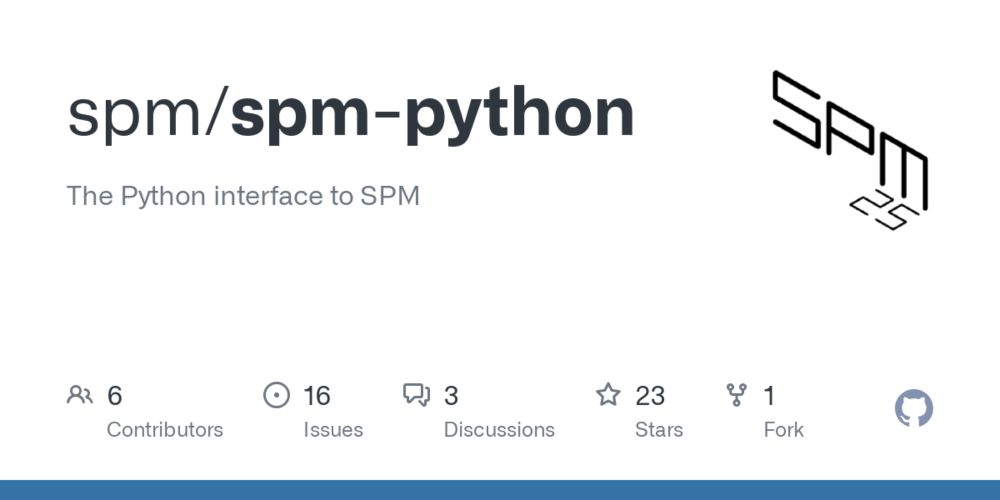
An open dataset of cerebral tau deposition in young healthy adults based on [18F]MK6240 positron emission tomography
by Jack Lam and a terrific team of colleagues at the Neuro, Douglas and UCL
▶️ pdf doi.org/10.1101/2025...
▶️ bids osf.io/znt9d

An open dataset of cerebral tau deposition in young healthy adults based on [18F]MK6240 positron emission tomography
by Jack Lam and a terrific team of colleagues at the Neuro, Douglas and UCL
▶️ pdf doi.org/10.1101/2025...
▶️ bids osf.io/znt9d
Excited to share a new pre-print addressing this question with connectivity-constrained interactive topographic networks, titled "Retinotopic scaffolding of high-level vision", w/ Marlene Behrmann & David Plaut.
🧵 ↓ 1/n
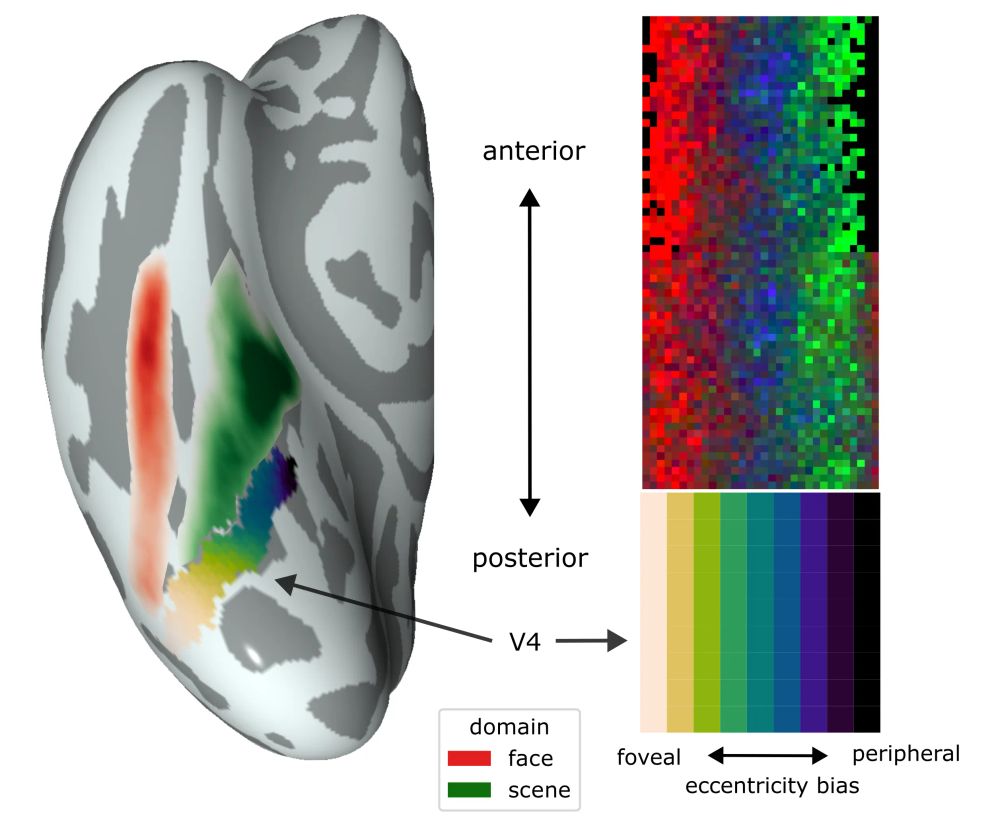
Excited to share a new pre-print addressing this question with connectivity-constrained interactive topographic networks, titled "Retinotopic scaffolding of high-level vision", w/ Marlene Behrmann & David Plaut.
🧵 ↓ 1/n
When a chickadee looks at a distant location, the same place cells activate as if it were actually there 👁️
The hippocampus encodes where the bird is looking, AND what it expects to see next -- enabling spatial reasoning from afar
bit.ly/3HvWSum
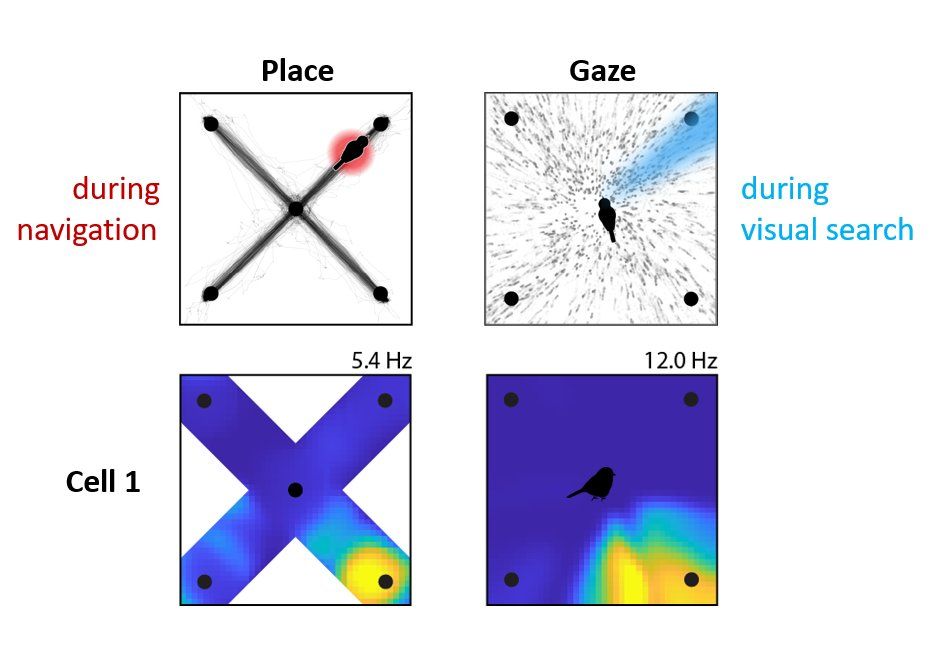
When a chickadee looks at a distant location, the same place cells activate as if it were actually there 👁️
The hippocampus encodes where the bird is looking, AND what it expects to see next -- enabling spatial reasoning from afar
bit.ly/3HvWSum
Beyond binding: from modular to natural vision
doi.org/10.1016/j.ti...
#neuroscience
Beyond binding: from modular to natural vision
doi.org/10.1016/j.ti...
#neuroscience

